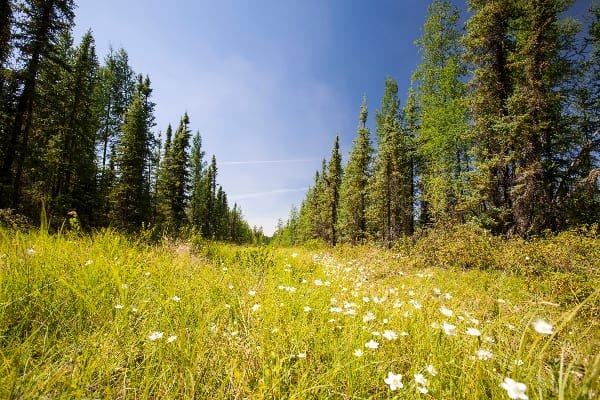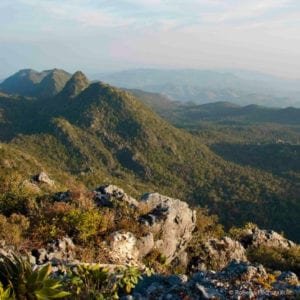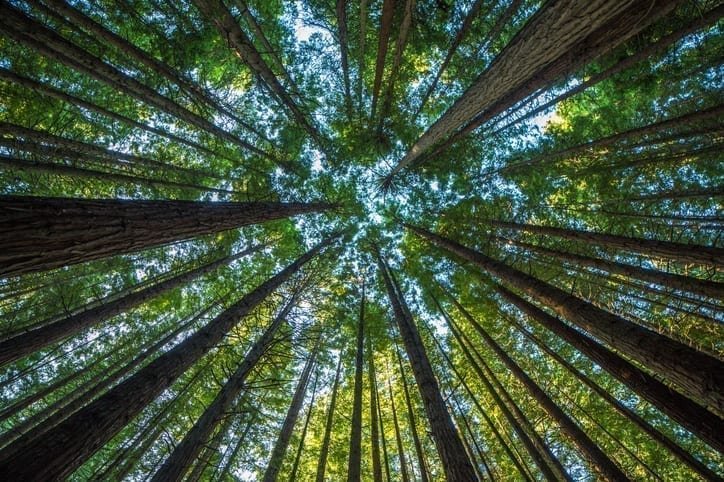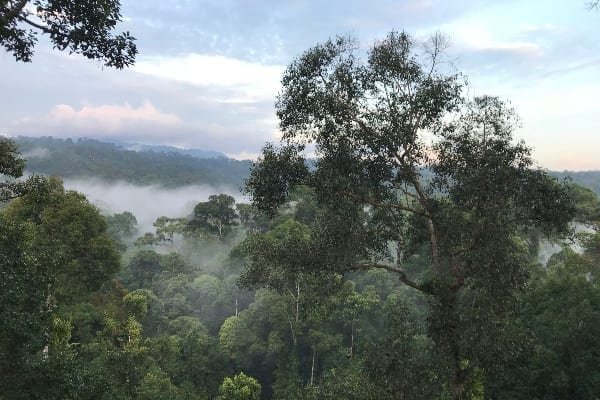Main image: Boreal forest in Northern Alberta, Canada near Fort McMurray © Global Warming Images / WWF
Nearly 59 million hectares of forests – an area larger than mainland France – has regrown since 2000, according to new analysis published today (11 May) by Trillion Trees, a joint venture between WWF, BirdLife International and WCS.
This area of forest has the potential to store the equivalent of 5.9 Gt of CO2 – more than the annual emissions of the USA.
By revealing the capacity of forests to regenerate themselves, the study will help guide smarter reforestation projects in the fight against climate change.
Regeneration hotspots
One of the success stories for regeneration highlighted in the study is the Atlantic Forest in Brazil, where an estimated 4.2 million hectares – an area roughly the size of the Netherlands – has regrown since 2000.
This has been through a combination of planned projects to restore the forest, more responsible industry practices and other factors including a migration trend towards cities.
In the boreal forests of Mongolia’s northern wilderness, the study suggests that 1.2 million hectares of forest have regenerated in the last 20 years.
This is in part thanks to the work of Trillion Trees partner WWF, alongside increased emphasis from the Mongolian government on protected areas.
Other regeneration hotspots include central Africa and the boreal forests of Canada.
Where to focus restoration efforts
The study is designed to help inform forest restoration plans worldwide, by giving a picture of the areas where focusing restoration efforts could be most beneficial.
It is part of a two-year research project, which involved examining more than 30 years’ worth of satellite imaging data and surveying experts with on-the-ground knowledge of more than a hundred sites in 29 different countries.
It follows WWF’s map of Deforestation Fronts, published earlier this year, which showed the alarming extent to which the world is losing its precious forests.
‘The science is clear: if we are to avoid dangerous climate change and turn around the loss of nature, we must both halt deforestation and restore natural forests.
‘We’ve known for a long time that natural forest regeneration is often cheaper, richer in carbon and better for biodiversity than actively planted forests, and this research tells us where and why regeneration is happening, and how we can recreate those conditions elsewhere.
‘But we can’t take this regeneration for granted – deforestation still claims millions of hectares every year, vastly more than is regenerated. To realise the potential of forests as a climate solution, we need support for regeneration in climate delivery plans and must tackle the drivers of deforestation, which in the UK means strong domestic laws to prevent our food causing deforestation overseas.’
WILLIAM BALDWIN-CANTELLO
Director of nature-based solutions at WWF
 Play Video about This Rock Might Just Save The World
Play Video about This Rock Might Just Save The World Play Video about Play 2 hours of rock
Play Video about Play 2 hours of rock Play Video about Play 2 hours of brook
Play Video about Play 2 hours of brook Play Video about Play 2 hours of sheep
Play Video about Play 2 hours of sheep















































